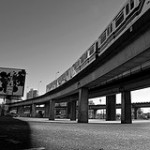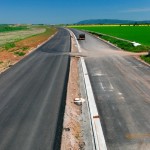Search Results
-
Nothing ADU-ing
Last time, we defined accessory dwelling units and told their story — how they spread so far and wide in Vancouver, BC. This time: their near-absence elsewhere in Cascadia. Most other Cascadian cities appear to trail behind Vancouver, BC, in the ADU leagues. In British Columbia, Abbotsford, Kelowna and other cities have embraced ADUs with at least a portion of Vancouver’s conviction. The mid-sized city of New Westminster stands out...Read more » -
Alaskan Way Viaduct: More Revenue Shortfalls Expected
This should come as a surprise to precisely nobody—and yet there’s still something shocking about this article from Mike Lindblom at The Seattle Times: More than three years after state lawmakers approved the Highway 99 tunnel, officials have yet to figure out how they can collect tolls for construction without clogging Seattle streets…One scenario, with tolls from $1 off-peak to $3.25 peak each direction, would raise $200 million for construction...Read more » -
Viaduct Referendum Event at Seattle Public Library
With the August 16 Primary ballot fast approaching, Seattle citizens will soon be able to vote on Referendum 1, relating to the replacement of the Alaskan Way Viaduct. What does this vote really mean? Many have said this is an important opportunity for the citizens of Seattle to voice their opinion on the tunnel option. What do you think? Join Seattle City Club, Publicola, and the Seattle Public Library on...Read more » -
Viaduct Diversion, By the Numbers
I think these may be the most important two sentences from the recent NelsonNygaard report on traffic diversion from Seattle’s Alaskan Way Viaduct: The State did model the 2015 Program (including the Elliott/Western Connector) with Toll Scenario C, but the results are not included in the SDEIS. In the model forecast including the connector, 38,000 daily trips use the tunnel…[Emphasis added] Translation: the state itself says that in the early years,...Read more » -
A Dissertation on the Viaduct
Seattle’s viaduct replacement debate has generated an untold volume of analysis, opinion, and argument. It’s also generated at least one PhD dissertation. Kevin Ramsey, a geography student at the University of Washington, takes a look at the way that concerns about climate change have been deployed in the debate over the replacement. (Abstract; summary; full text.) I’ll confess that I haven’t made my way through the entire 250 pages, but it strikes me as providing some fascinating...Read more » -
Viaduct: A Blast from the Past
Cleaning out some old computer files, I came across this blast from the past: a 2001 Seattle Times article on Seattle’s seismically-vulnerable Alaskan Way Viaduct, which contained this little gem… A 1996 study by engineers at the University of Washington found that the viaduct was built on soil that could liquefy in an earthquake. Engineers also found problems in the way the columns were connected to the foundation. The UW...Read more » -
Viaduct: What's That Sound?
Ah, the Viaduct—the gift that keeps on giving. Yesterday’s Seattle Timesquotes Washington’s House Transportation Chair Judy Clibborn (D-Mercer Island) as saying, “if you listen carefully you will hear a giant sigh.” She believes it’s a sigh of relief, because the state legislature is moving forward with a plan to replace Seattle’s aging Alaskan Way Viaduct with a tunnel. But perhaps it’s a sigh of exasperation, exhaled by the 70 percent...Read more » -
Clark on the Viaduct
There was a minor hubbub in the office yesterday when the news came in that a piece of the Alaskan Way Viaduct—the noisy elevated highway that affronts the Seattle shoreline—had collapsed. Clark ran down to check out the scene, and it turned out to be a fairly minor incident, as such things go: a car had knocked loose a piece of concrete guardrail onto the sidewalk about 50 feet below....Read more » -
Germany Gradually Weaning Itself From Oil?
Germany’s been a global leader in energy policy for some time now. (For what it’s worth, we picked Germany as the “model” for the Cascadia Scorecard’s energy indicator because it was doing such a bang-up job with its energy policy.) And if anything, it looks like their efforts to reduce emissions are picking up steam: German use of oil, gas and coal in 2007 fell by 5.6 per cent compared...Read more » -
Sightline Does the Math on the Seattle Viaduct
Sightline research director Clark Williams-Derry analyzes the Seattle viaduct debate and comes to a few simple conclusions: roads are expensive, rush hour is the worst problem, and the differences between short- and long-term consequences.Read more »




